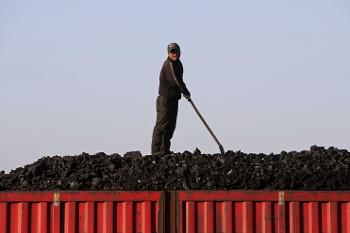Xi highlights environmental protection in speech
A summary of the top news in Chinese politics and current affairs for October 18, 2017. Part of the daily The China Project newsletter, a convenient package of China’s business, political, and cultural news delivered to your inbox for free. Subscribe here.

Coverage of Xi Jinping’s speech to China’s 19th national congress on October 18 mostly focused, rightly, on topics such as authoritarian retrenchment, a push for global influence, and economic adjustments over market-based reforms. Somewhat lost has been the remarkable emphasis that the speech placed on environmental protection. Quartz has a good selection of quotes:
- “Taking a driving seat in international cooperation to respond to climate change, China has become an important participant, contributor, and torchbearer in the global endeavor for ecological civilization,” Xi said merely 15 minutes into his marathon three-and-a-half-hour speech.
- Xi’s remarks on environment were “couched in more emotional terms” than his predecessors’, Quartz says, noting his urging to “cherish our environment as we cherish our own lives” and his comment that “Any harm we inflict on nature will eventually return to haunt us… this is a reality we have to face.”
These words reflect a wave of increasingly serious crackdowns on polluting industries and specific firms as the country strives to shift to cleaner energy and reduce air, soil, and water pollution. Bloomberg additionally notes that Xi softened the usual economic growth targets, choosing not to specify a hard target for 2020 as his predecessor had done, and instead choosing a vaguer goal of building a “moderately prosperous society” by that time, signalling “higher attention to tasks such as curbing pollution.”
In other recent environmental news:
- Reuters reports that the China National Renewable Energy Centre and the Energy Research Institute of Academy of Macroeconomic Research warned that China may still need to toughen its renewable energy targets to meet commitments made in the Paris Agreement. Reuters also reports that the director of the National Development and Reform Commission’s Energy Research Institute said that without policy change, the total shortfall for subsidies in renewable energy by 2020 will be 200 billion yuan ($30.2 billion).
- But at the same time, an official at the National Energy Administration (NEA) said that he expects China to “solve the problem of renewable energy going to waste by 2020,” and that the wind industry, at least, should be able to wean itself off of subsidies by 2022, according to Reuters.
- 19th Party Congress and Xi Jinping
China’s Xi lays out vision for ‘new era’ led by ‘still stronger’ Communist Party / Reuters
“Although his wide-ranging address made clear there were no plans for political reform, Xi said China’s development had entered a “new era,” using the phrase 36 times in a speech that ran nearly 3-1/2 hours.”
China’s Xi feeds expectations for a lengthy reign / WSJ (paywall)
The emphasis on a goal for “socialist modernization” by 2035 — within Xi’s lifetime — “certainly accentuates the growing expectation that Xi has no plans to retire any time soon,” says scholar Jude Blanchette.
China anti-corruption purge hits Central Committee members / FT (paywall)
Of the 205 members of the previous Central Committee, 18 of them — 9 percent — have been detained for corruption.
China’s Xi says can thwart Taiwan independence, Taiwan says democracy first / Reuters
Xi’s line on Taiwanese “separatism” drew “the longest applause during his 3-1/2 hour speech,” Reuters reports. - Crime, punishment, and law
China’s legal community reflects on ‘lawyers for all’ trial run / Sixth Tone
China’s getting a new law to fight corruption, but there’s still no place for lawyers / SCMP - Hong Kong
UK summons Chinese ambassador after British activist barred from Hong Kong / The Guardian






